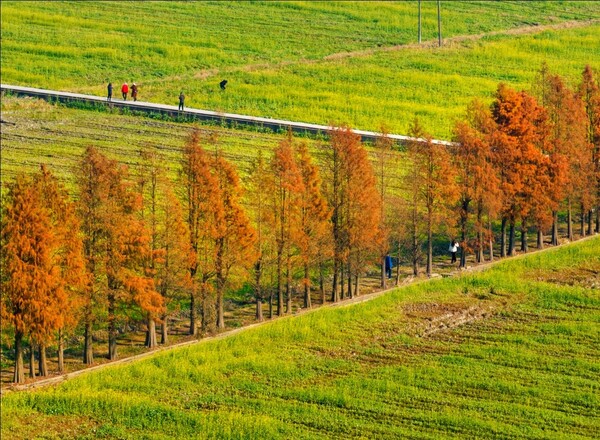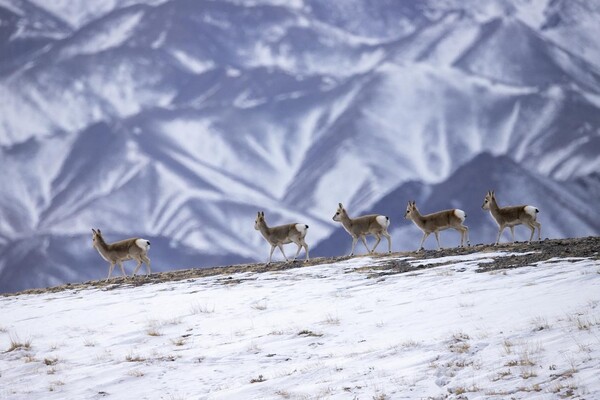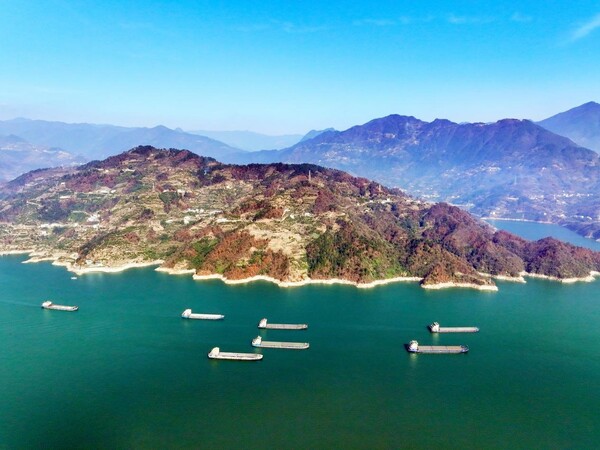By Liu Yi, People's Daily
Tall transmission towers are favorite nesting sites for many bird species, but birds nesting on these towers can easily cause line tripping and threaten their own safety.
To address this issue, power grid workers have been actively exploring solutions. Instead of simply expelling birds from the towers, they are now constructing artificial nests in non-electrified sections of the towers, taking insulation treatment on part of the towers and other measures.

This approach has been widely adopted in various provinces, municipalities and autonomous regions in China. Now, birds find their homes in these lovingly built nests on transmission towers, creating a beautiful scenery that showcases the harmonious coexistence between man and nature.

In recent years, as the concept of ecological civilization has been increasingly popular, there has been a profound shift in people's attitudes toward nature. Man and nature is a symbiotic relationship, and harm to nature will ultimately harm humanity itself. Conversely, respecting, adapting to, and protecting nature can bring immense benefits to humanity.

The transformation of power grid workers, from expelling birds to nesting and protecting birds, is a vivid reflection of this conceptual change.
Nature is the fundamental condition for human survival and development. China has actively explored the path of harmonious coexistence between man and nature by respecting nature, following its ways, and protecting it.
Significant achievements have been made in China's efforts to keep skies blue, waters clear, and lands clean. China's innovative approach to marine plastic waste management, known as the "Blue Circle," has been honored with the 2023 Champions of the Earth award by the United Nations Environment Program. The Chinese experiences in pursuing a modernization featuring harmony between human and nature.
The respect and awe for the natural ecology is essential for achieving the harmonious coexistence between man and nature.
In the past, people in certain regions blindly "marched into the desert," and reclaimed land from lakes and seas, only to find that they did not conquer nature but instead disrupted the ecological balance.
Nowadays, people place great importance on the conservation of natural ecology, protecting and cherishing the eco-environment. When protecting and restoring the ecology, they follow the laws of nature and utilize the inherent power of nature. They employ a combination of natural recovery and artificial restoration methods, adapting their approach based on local conditions and implementing targeted strategies in different situations.
If humanity does not fail nature, nature shall never fail humanity. By respecting nature, following its ways, and protecting it, the vitality and resilience of the ecosystem can be gradually restored.
To promote high-quality development in sync with high-standard protection is an inevitable path in pursuing the harmonious coexistence between man and nature.
China never grows its economy at the cost of resource depletion and environmental degradation, nor does it sacrifice growth in the process of ecological protection. Instead, it adheres to the sustainable development path of achieving both ecological and economic benefits.
With an annual energy consumption growth rate of 3 percent, China has supported an annual economic growth rate of over 6 percent. The country has established the world's largest carbon market and clean power generation system, with the proportion of coal in energy consumption decreasing to 56.2 percent and the share of clean energy consumption increasing to 25.9 percent.
China has also been the world's top producer and seller of new energy vehicles for years in a row. Green development has become a defining feature of China's high-quality development.
As the blue sky and white clouds have reemerged, the Chinese people are enjoying a more livable urban and rural environment. Recently, the Central Economic Work Conference outlined China's economic plan for 2024, explicitly calling for advancing ecological conservation and promoting green and low-carbon development. Respecting nature, following its ways, and protecting it, China is unfolding a new and beautiful picture of harmonious coexistence between man and nature.

